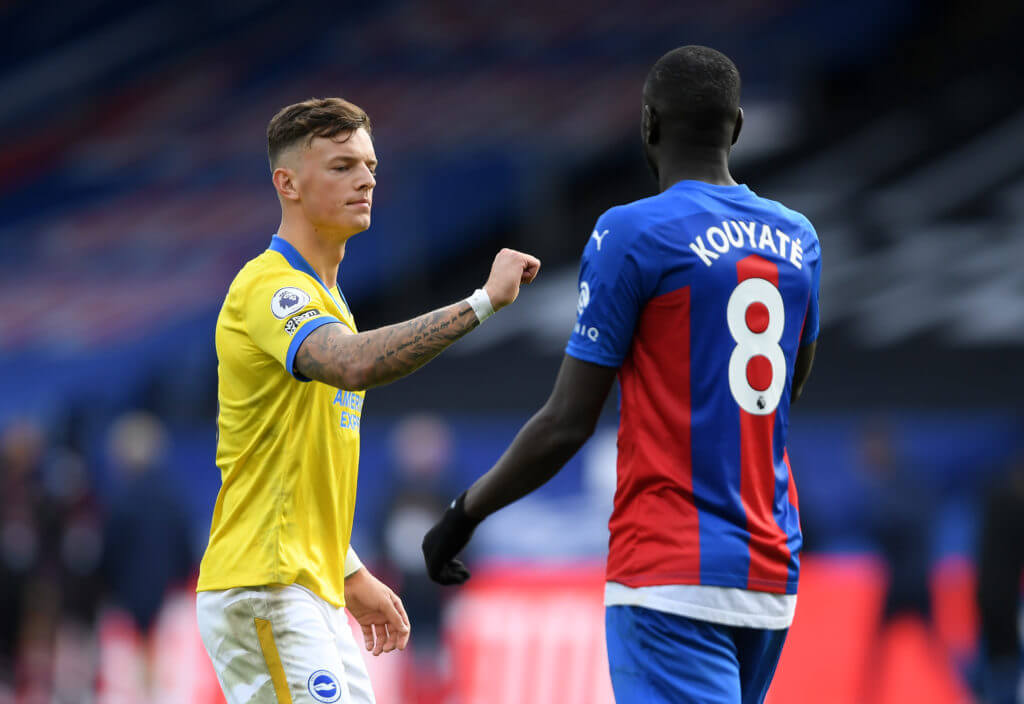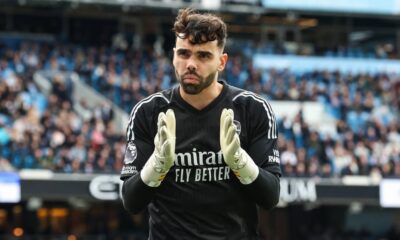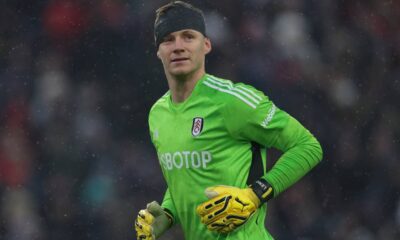Champions League
The Premier League’s busiest period of the season is hampered by the coronavirus. What’s next for the competition?
Five Premier League matches scheduled for this weekend had to be postponed due to coronavirus rankings in the British Isles. Around Christmas, the schedule is traditionally the busiest for English football fans. How, if at all, can the next emerging crisis be resolved?

Five Premier League matches scheduled for this weekend have had to be postponed due to coronavirus rankings in the British Isles. Around Christmas, the schedule is traditionally the busiest for English football fans. How, if at all, can the next emerging crisis be resolved?
Hardly anyone spends Christmas time with their family members or comfortably with classic films and fairy tales. However, English football fans are used to having their fill at this time of year more than at any other time of the year.
Only this year, they may well be forced to spend the holidays in the company of Frosty, Petronel the angel or Dorothy Machal rather than, say, Mohamed Salah, Tomas Soucek or Raheem Sterling.
For the Premier League, like the UK as a whole, has been struggling hard in recent weeks with a worsening coronary situation that seems increasingly untenable. The country has clearly been counting the highest daily additions of newly infected people in recent days, and although hospitals have so far been operating relatively smoothly, fears of a new variant of coronavirus are growing rapidly.
Is it possible that football will come to a complete halt?
There are now a lot of positive cases across football clubs. This weekend, even half of the matches had to be cancelled, leading to increasingly loud speculation as to whether island football is in danger of being issued with a temporary red card.
What is certain is that this option will only be on the table of the competition’s management in a very extreme case. Nobody in England wants a repeat of last spring, when football was not played for almost a quarter of a year, after which clubs and the Premier League itself had to patch up huge economic holes.
The truth is, however, that further losses will probably inevitably follow. The islands are heading for big problems before the festive end of the year and it would be rather a miracle if on the so-called Boxing Day, 26 December, when traditionally football stadiums in England are visited by the most people of the whole season, most of the stands were actually filled to the maximum.
That is why the current mind-set is more than obvious: let’s vaccinate, let’s follow the coronavirus protocol really strictly, let’s follow all hygiene regulations and recommendations as much as possible and, if we can, let’s play.
However, there is no more to this question than that. Not even an omniscient oracle could give you a clear opinion. The fate of what happens next in the UK, and particularly on the green, is now unfortunately more than a little unpredictable.
Would a pause help?
During the week, Brentford head coach Thomas Frank, where there are currently at best 13 positive cases, called for a shorter break, i.e. postponing the weekend league round and Carabao Cup matches scheduled for Wednesday and Thursday, so that the various clubs could better control the spread of the virus and get their teams properly in shape.
However, according to Paul Hunter, a professor of medicine at Norwich’s University of East Anglia, who was contacted by The Athletic, such a move would make little sense. The virus might have somehow disappeared during the break, but it would still be around and there would be a good chance of it returning.
“It’s hard to give a solution for the sports industry. Cases are rocketing, especially in the twenties where the vast majority of footballers fall. It’s spreading fast, there are twice as many cases every two or three days. It has to slow down soon, but the big question is how long it will all last,” Hunter admitted.
He also expects that gradually the contagion will sweep through most of the English clubs and therefore that postponed matches may still increase, yet the Premier League and the EFL, according to recent statements, want to go ahead with the programme.
A possibility could be the creation of bubbles, familiar from previous coronavirus waves, i.e. teams completely isolating themselves from the outside world, locking themselves in hotels and only going out for training and matches. But to cut the players off from their families a few days before Christmas? That would probably be hard to get away with.
“Bubbles are great in that they actually reduce the risk of contagion entering a given group very significantly. However, Omicron is so infectious that I think it would spread peacefully into bubbles. It’s going to be very difficult for football clubs in the coming weeks, but what’s more important in my opinion is what’s happening in the general population,” Hunter added.
Is there even room in the calendar for catch up games?
That will be extremely complicated, especially, of course, for the clubs that continue to hold their own in the European Cups. For now, the number of postponed games is probably still within manageable limits, but that may not be the case very soon.
After all, teams potentially reaching the Champions League or Europa League final would have to cut six midweek match slots. Add to that the advanced stages of England’s Carabao Cup and FA Cup, the national break at the end of January/February for all the non-European national teams, and then at the end of March for those from the old continent, and you get a very tight margin of manoeuvre.
Actually, with all the above mentioned matches included in the calendar, there are only two vacancies in the second half of the year! These are April 18 and May 9.
To make matters worse, the football programme makers are also in a pinch because of the Nations League, the main group of which is due to be played next summer, and above all the winter World Cup in Qatar, which will cause a real mess in the calendar.
The Champions League final is due to take place on 28 May, the first playing days of the next edition of the Nations League are scheduled for 2-14 June and the next edition of the Premier League is scheduled to kick off on 6 August. In addition, many players have been virtually absent from proper holidays for the past two years and with the World Cup looming, they will surely be asking for some of that time off in the summer.
So how everything will fit into the calendar is the question. What is certain, in any case, is that English football is in for another difficult period.
Source: The Athletic












